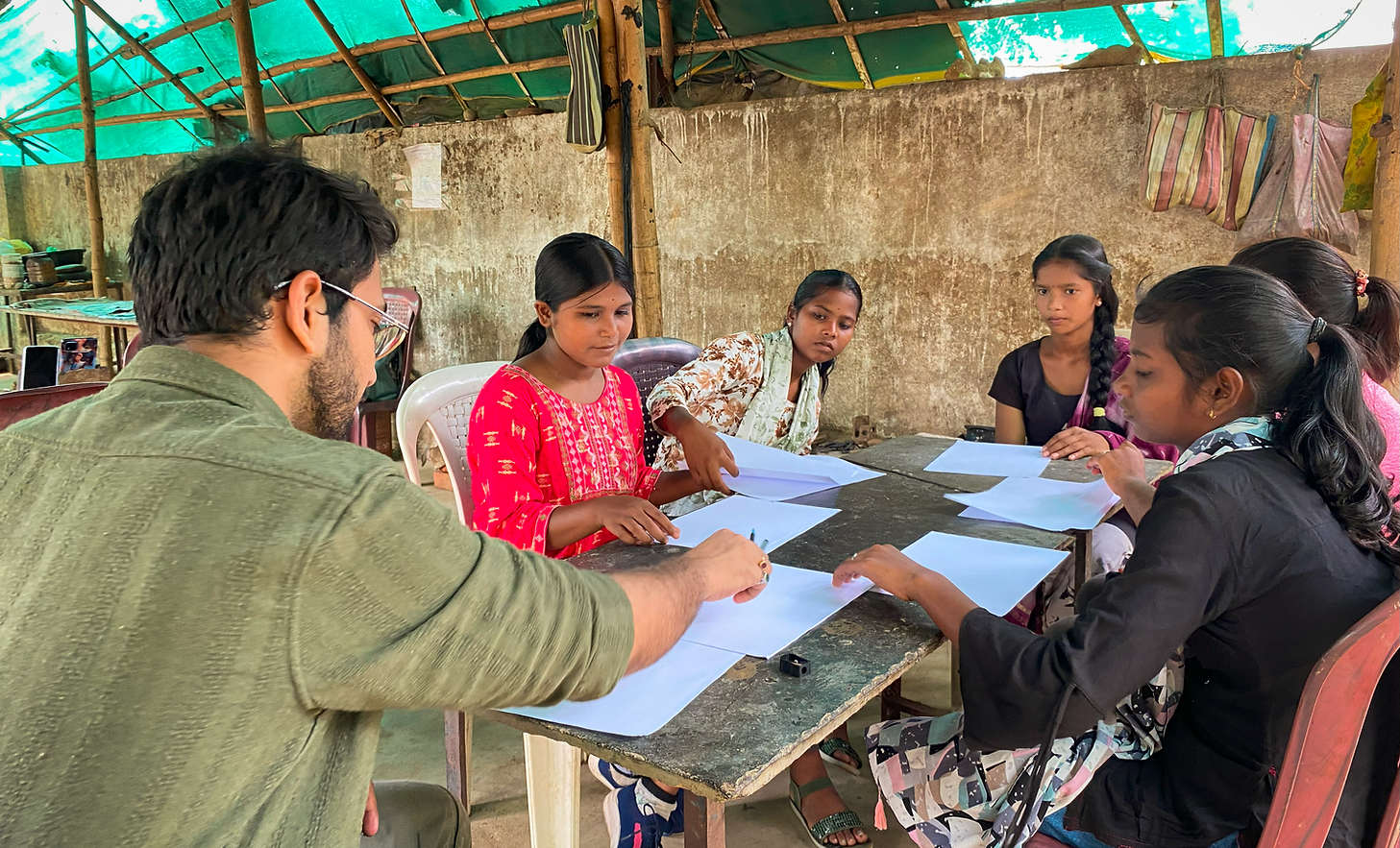top of page
Story of Karyashala
In the quiet lanes of Bhavnagar, Gujarat, something unexpected was brewing on a sunlit terrace.
It was November 2021. Jay Jagad, freshly graduated in Architecture and Planning from NIT Jaipur, had returned to his hometown with a simple intention: to set up a local design practice and build a team. He put out an advertisement to hire architects for his ongoing projects in the city. The response was overwhelming. Over 30 individuals showed up young designers from in and around Bhavnagar, eager to work. Portfolios came in, conversations happened, but something didn’t click. What Jay found missing wasn’t talent it was rigour, zeal, and that deep inner fire to create with purpose. It wasn't a skills gap; it was a mindset gap. And so, with nothing but a calling to teach and a belief that change begins at home, Karyashalla was born on the terrace of Jay’s house.

What started as an impromptu initiative to train a few curious minds soon took on a life of its own. The terrace became a studio, and then a classroom. As the number of learners grew, so did the space eventually extending into a reimagined room. What was once a one-man effort quickly drew seekers from across states Maharashtra, Rajasthan, Telangana, Uttar Pradesh. Karyashalla, once local, was now quietly becoming national.
Jay didn’t just teach; he immersed his students in the field, on construction sites, inside studios, and in dusty artisan workshops. His model was radical, less theory, more doing. Students weren’t just employable; they became creators, many launching their own design ventures. The curriculum at Karyashalla was fluid evolving with each student, each project, and the changing pulse of the market. For Jay, teaching was never a one-way street. “I learn more from my students than they learn from me,” he often says. A self-confessed observer of human behavior, he is deeply curious about how people think, feel, and respond to their environments. This curiosity led him into the world of craft and community where his journey as a designer took on new texture and depth.


Jay’s work with legendary artisans shaped his perspective. With Mrs. Sukhdev Kaur, a National Award-winning Phulkari artisan from Rupnagar, Punjab, he helped develop hybrid embroidery techniques that balanced tradition with scalability. In Kashmir, he lived and worked for 20 days with Mr. Khwaja Waseem, a master of Pashmina weaving. There, among looms and stories, he co-crafted branding strategies to better communicate the soul of their products to a larger audience. In 2024, Jay took a decisive leap enrolling for his Master’s in Industrial Design at IIT Delhi, the beating heart of India's design and innovation ecosystem. Delhi exposed him to a new world of events, people, collaborations, and new ways of thinking. But instead of drifting away from his roots, it deepened them.
He began mentoring marginalized communities, helping build hyperlocal ecosystems rooted in sustainability and dignity. He soon realized that regions untouched by formal design education were often the richest in culture, wisdom, and craft. From the tribal belts of Maharashtra to artisan clusters across rural India, Jay embedded himself, not as a savior, but as a listener, learner, and co-creator.
Karyashalla grew from this ethos. It became a platform for cultural resilience, economic empowerment, and narrative-driven entrepreneurship, going beyond traditional design education. Its programs are immersive and hands-on, where learners get their hands dirty and their hearts full, emerging not just as students but as catalysts of change in the communities they touch.
Today, Jay has joined forces with Devrai Kala Gram, a craft-led initiative founded by Suresh Pungati in Bhamragadh, Maharashtra. Together, they are setting up Karyashalla’s next chapter in Bhamragadh, focused on skill development, employment generation, dignity, and sustainable livelihoods, deepening their shared commitment to indigenous knowledge and rural innovation.
Jay’s journey is a testament to what happens when passion meets purpose, and when education is shaped not in isolation but in collaboration with the world around us.
Karyashalla is no longer just a school.
It is a movement.
And it began on a terrace in Bhavnagar.
bottom of page
